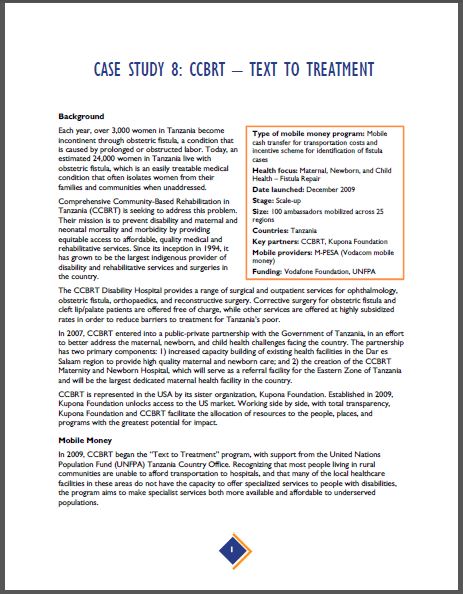Mobile Money for Health Case Study: CCBRT – Text to Treatment (Tanzania)
Categories: Digital Finance, Maternal, Neonatal and Child Health (MNCH), Publications
Resource Type: Case Studies
Authors: Health Finance and Governance (HFG)
Published: 10/31/2015
This case study is one of 14 case studies profiled in the Mobile Money for Health Case Study Compendium.
Each year, over 3,000 women in Tanzania become incontinent through obstetric fistula, a condition that is caused by prolonged or obstructed labor. Today, an estimated 24,000 women in Tanzania live with obstetric fistula, which is an easily treatable medical condition that often isolates women from their families and communities when unaddressed. Comprehensive Community-Based Rehabilitation in Tanzania (CCBRT) is seeking to address this problem. Since its inception in 1994, it has grown to be the largest indigenous provider of disability and rehabilitative services and surgeries in the country. In 2009, CCBRT began the “Text to Treatment” program, with support from the United Nations Population Fund (UNFPA) Tanzania Country Office. Recognizing that most people living in rural communities are unable to afford transportation to hospitals, and that many of the local healthcare facilities in these areas do not have the capacity to offer specialized services to people with disabilities, the program aims to make specialist services both more available and affordable to underserved populations.




